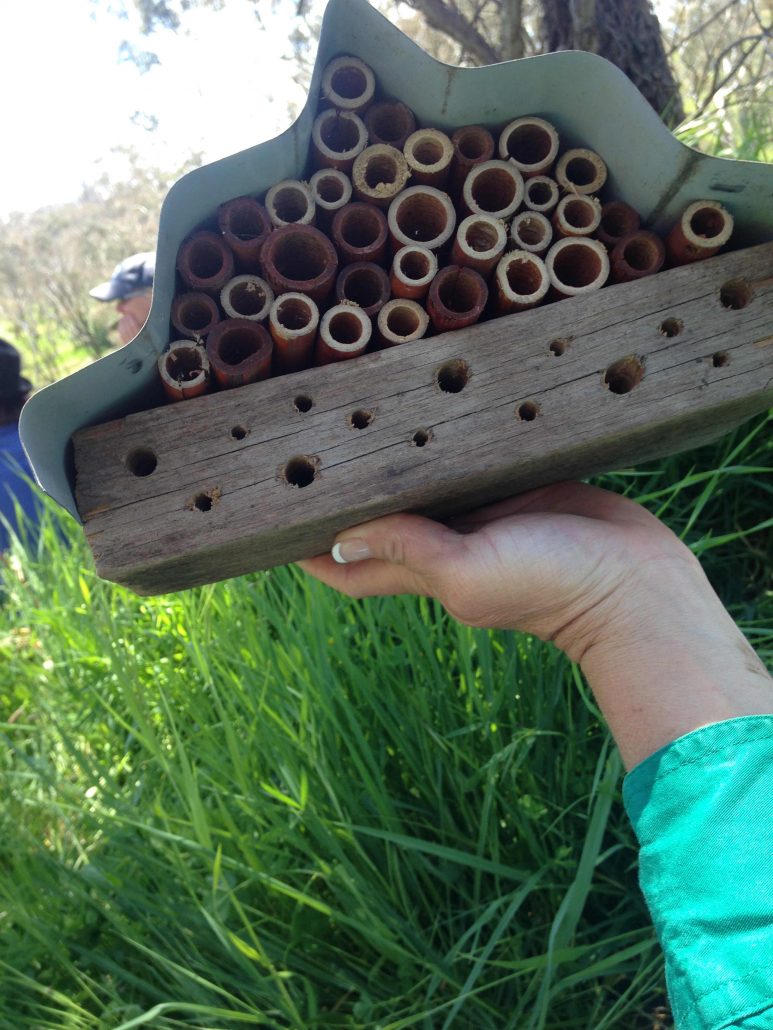Help provide homes for pollinators
Pollinators are vital to keep plant species flowering and re-producing. But did you know that many of our food crops such as fruit, wine grapes and vegetables rely on native insects for this service?
Australia has about 1,600 species of native bees, with around 250 to 300 species being found within a 100 kilometre radius of any given area.
Many native pollinators are also predators, feeding on other pest insects. Wasps, hoverflies and shield bugs can reduce the numbers of insect pests in orchards, vineyards and other agricultural crops as well as your ornamental or veggie garden.
Many native pollinators are under threat; land clearing and the extensive use of pesticide and fungicide sprays have removed their food source and their habitat.
With over 75% of flowering plants relying on insect pollinators for reproduction, the decline of their populations is bad news for biodiversity, ecosystems and the security of many of our food sources.
Whether your backyard is a farm, bushland, suburban block or a balcony you can help to support and protect native pollinator populations.
Valuable pollinator habitat can be created by maintaining and enhancing native vegetation, planting lots of flowering plants and minimising or eradicating pesticide and fungicide use.
You can also provide habitat for cavity-nesting insects by bundling together hollow stems from pruning.
Native bee hotels or motels not only provide plenty of nooks and crannies for these beneficial insects to nest in but can be very decorative as well. These can be made in all shapes and sizes, the only limit is your creativity!

If you would like to learn more about our native pollinators and how to provide habitat for them in your backyard, Watershed Landcare will be hosting workshops to help you build your own bee motel at the Mudgee Small Farms Field Days in July.
